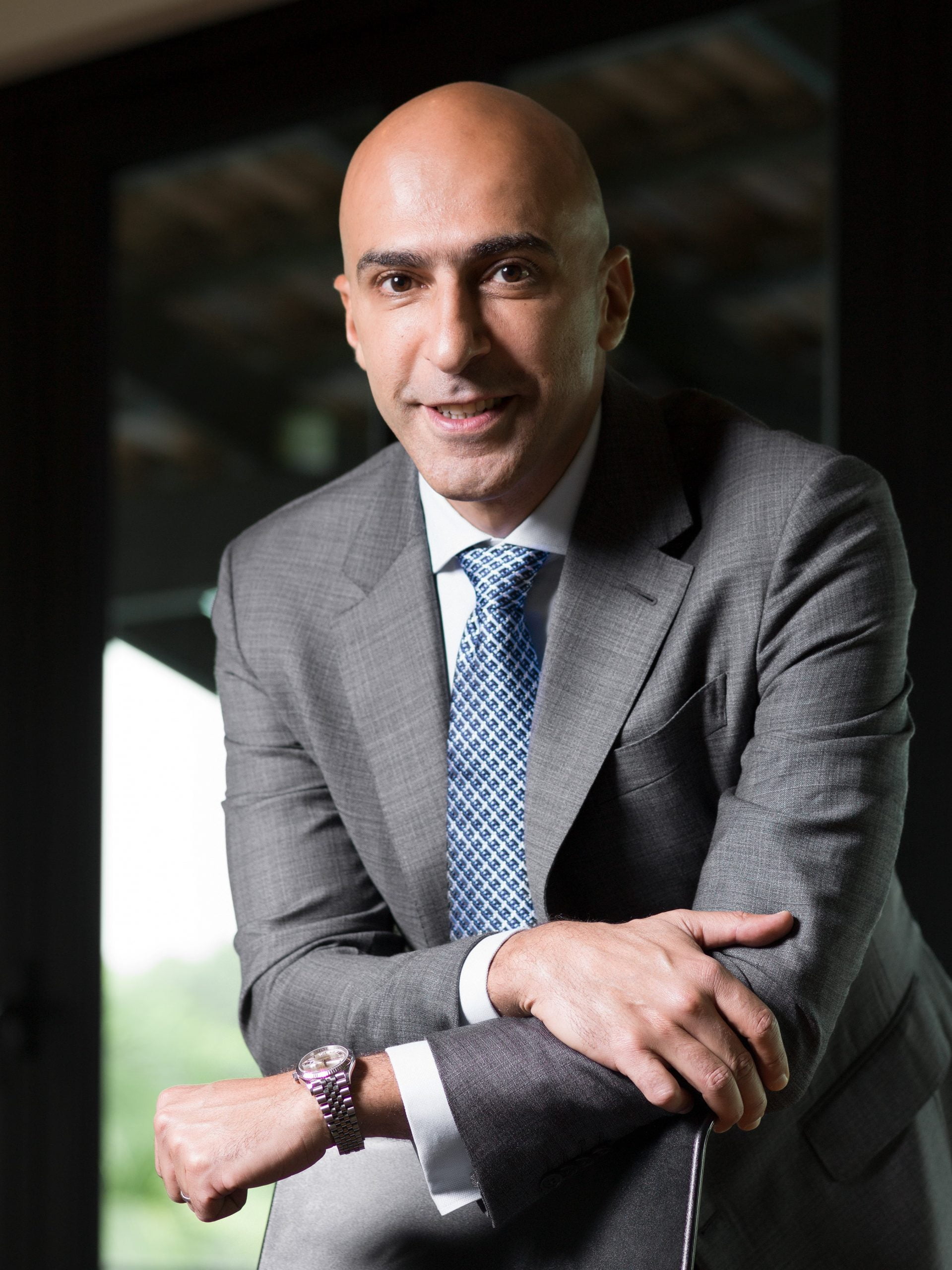According to family systems theory, every relationship within the family is important. Family relationships affect the well-being of every family member and the dynamics of the family as a whole.
While the relationship between dads and daughters is sometimes overlooked, it can have deep and meaningful consequences for the lives and mental well-being of girls. Research shows that when dads are positively involved in their daughters’ upbringing, adolescent girls have higher self-esteem and well-being.
However, as girls enter adolescence, the role that Dads have in their daughters’ lives changes, and some dads can find this challenging to navigate. Keeping connection and closeness involves shifting and re-negotiating relationship dynamics. It requires fathers to be open and sensitive to their daughters’ needs, and to self-reflect on their own parenting. It requires dads to move away from their protective role and to listen, validate, and support.
Parenting and Adolescence
Adolescence is a particularly vulnerable time for young people, as they navigate biological, social, and emotional changes. As teenagers explore their identities and new social roles, they’re also exposed to interpersonal and other stressors, such as rejection by peers or academic pressures, that can contribute to psychological distress.
Within this process, close parent-child relationships may be significant. Research has found that positive relationships and open communication with parents can help protect against symptoms of depression in the teenage years.
As girls enter their tweens and teens, parents transition from a protective role to a consulting or collaborative position. Instead of making decisions for a young person to keep them emotionally and socially safe, parenting starts to centre around advising a young person and making decisions collectively, as a team. Sometimes, Dads find this change difficult to navigate, as social norms around masculinity encourage them to hold onto their protective role, even when it’s at odds with their daughter’s growing autonomy.
Here, we’ve included some ways that dads can maintain and build connections with their daughters as they navigate their teenage years.
Warmth and Affection
When girls are young, it usually comes naturally to dads to show warmth and affection. But as their daughters enter puberty, they can become more hesitant. Sometimes dads can feel awkward, but it’s important not to withdraw this warmth and care.
While the way you express affection may change as a young person grows older, affection remains a key component of feeling loved, and teenage girls need it just as much as young children. By staying in tune with your daughter’s needs and boundaries, asking questions, and listening, you can feel confident in how you express affection and prevent uncertainty from turning into distance.
Emotional Support
Intuitively, we know that emotional support is a foundation of close, strong relationships. But sometimes, ideas about gender roles can discourage fathers from offering emotional support, especially for teenage girls. They may feel unprepared to offer good advice or believe that emotional conversations are better suited to mother-daughter dyads.
But in reality, teenage girls appreciate emotional support from their fathers as well as their mothers. Research shows that emotional support is a key component of positive father involvement in daughters’ lives, helping to build closeness and connection. Stay sensitive to your daughter’s needs, check in on her feelings if something doesn’t seem right, and be ready to offer emotional support if she reaches out.
Encouraging Autonomy
In constructs of parental closeness during adolescence, autonomy support goes hand-in-hand with emotional support. Autonomy support means encouraging a young person to explore new situations, boosting their self-confidence to voice their opinions and exercise their agency.
As autonomy lies at the core of teenage development, autonomy support and recognition are deeply important for adolescent girls. Research suggests that encouraging adolescent girls to voice their opinions may be especially important for father-daughter relationships, but there are many different ways that dads can support their daughters’ autonomy.
Autonomy support can involve encouraging teenagers to pursue their interests and passions, validating their perspectives in discussions, and providing opportunities for decision-making. It might include allowing them to work things out for themselves, rather than presenting solutions or solving problems together.
Taking Care with Expectations
It’s essential for parents to have clear expectations for their children. We might expect basic values like kindness, fairness, and respect, and parents should communicate these clearly.
But when dads have expectations that interfere with a teenager’s autonomy about who they are or want to be, or leave them feeling inadequate, it can lead to hurt, distance, and distrust. For example, expectations of high academic achievement can cause feelings of shame, anxiety, and stress. Or expectations to pursue a certain career or life path can feel like an attempt to control their identity and sense of self.
Research has found that rules and academic expectations from Dads that may leave teenage girls feeling forced or pressured can create distance in their relationship.
Listening and Discussing
As a young person enters their teenage years, the role of the parent changes. Parenting behaviours that may have been necessary to keep a child safe start to feel restrictive and at odds with their growing autonomy. This can cause tension and distance between Dads and daughters.
Instead of making decisions for your daughter, it’s important to listen carefully to the dilemmas they encounter and try to work out solutions together. Hear what they have to say, understand their perspective, and offer your perspective too.
Praise and Encouragement
As girls enter their teenage years, they often lose self-confidence. A study based in the United States found that white girls experienced a sharp dip in self-worth between the ages of eleven and fourteen. Other research has found that girls often begin to lose confidence even earlier.
This means that it’s crucial for parents, including Fathers, to praise and encourage their daughters during their tween and teenage years. And when you offer praise, praise their character and actions rather than outcomes. This can help young girls to appreciate who they are, rather than feeling like their value depends on what they achieve.
It’s also important to avoid focusing on their appearance. Comments about a young person’s appearance – even positive ones – can increase traits like self-objectification and make them more vulnerable to mental health disorders, including eating disorders. So, try praising them for their kindness, creativity, care, or thoughtfulness. Notice small actions they take, such as helping a friend or learning a new skill, and recognise their value.
Validating Her Feelings and Experiences
Sadly, many teenage girls experience sexism in their everyday lives. They might receive sexist comments, harassment, or be treated a certain way because of their gender.
If your daughter experiences sexism, make sure you validate – and never minimise – her feelings. Listen carefully to what she has to say and let her know that, although you have never been in her position, you want to support her in any way you can.
Taking Care of Your Own Language and Behaviours
Our culture is riddled with everyday sexism, and you may find that sometimes you use sexist language or reproduce sexist behaviours without even realising it. For example, common phrases like “boys will be boys” often excuse and normalise problematic behaviours, rather than holding men or boys accountable. People also tend to describe men and women in different ways, such as calling a woman “bossy” but a man “confident”. This reinforces gender stereotypes and assigned gender roles.
It’s important to take care of the language you are using and watch out for any sexist behaviours you may have learnt from the society around you. If your daughter or another person calls you out, take responsibility and refrain from doing it again.
Sharing in her Interests
Dads don’t have to share all of their daughters’ passions, but collectively appreciating a few common interests can help to build closeness and connection. You might like to let her take the lead when choosing activities to do together, letting her know that you value her interests and want to share them together.
The Wave Clinic: Transformative Mental Health Support for Young People and Families
The Wave Clinic provides specialised mental health treatment services for children, teenagers, young adults, and their families. We offer outpatient, intensive outpatient, and residential programs featuring a diverse range of evidence-based treatment modalities. We combine exceptional clinical care with enriching experiences, transforming intra- and interpersonal dynamics by creating new memories and ways of being.
We offer family and parenting intensives for family trauma, including sex addiction, betrayal trauma, and separation.To find out more about our programs, please contact us today.
Malek Yassin is the treatment director at The Wave Clinic. Specialising in child and adolescent psychiatry, he has over 19 years of experience in mental health treatment for adolescents, young adults, and families. Malek is a bilingual certified child and adolescent trauma professional with a specialist interest in the treatment of complex and developmental trauma, antisocial personality disorder, conduct disorder and oppositional defiant disorder. Malek is EMDR (EMDRIA), CBT, IRRT, PE, and MBT trained. Currently studying traumatology, he is a fellow of APPCH (U.K.) and a senior accredited member of Addiction Professionals.
More from Malek Yassin











